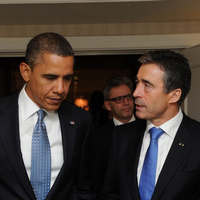NATO approved a new Strategic Concept in Lisbon on Nov. 19, the first reworking of the alliance's mission statement since 1999. Although the document offers plenty of promises, the alliance seems to have overlooked a number of problems it faces in making good on them.
First, the promises. The new Strategic Concept:
- calls on the allies to develop their capacity to "prevent, detect, defend against and recover from cyber-attacks," to protect "critical energy infrastructure" and to "maintain robust, mobile and deployable conventional forces to carry out . . . Article 5 responsibilities and the alliance's expeditionary operations."
- reaffirms the alliance's commitment to the collective-defense clause known as Article 5, declaring that the allies "will always assist each other against attack, in accordance with Article 5 . . . No one should doubt NATO's resolve."
- commits the allies to "develop the capability to defend our populations and territories against ballistic-missile attack," pointedly calling this new mission "a core element" of collective defense.
- calls terrorism "a direct threat to the security of the citizens of NATO countries."
- challenges NATO members to "sustain the necessary levels of defense spending" and to deploy "sufficiently resourced" forces so that the alliance might shoulder new missions in new areas of the world while still carrying out its enduring mission of protecting allied territory.

